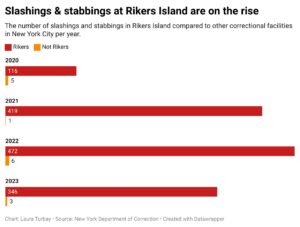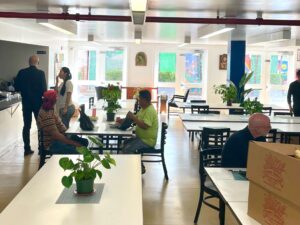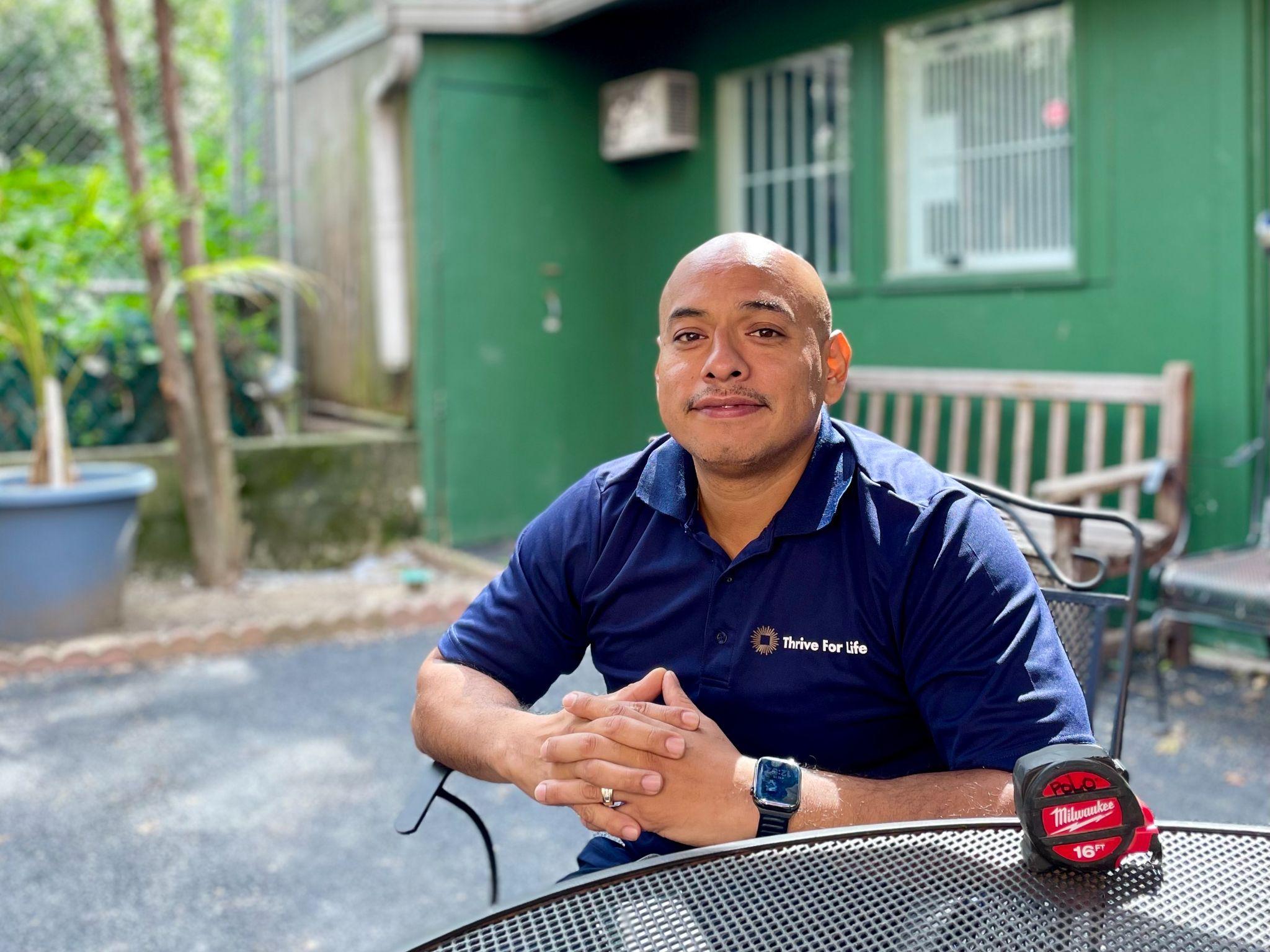(Vaya aquí para leer una version en español.)
At age 31, Italo Sanchez had already been imprisoned twice, and had been caught in a vicious incarceration cycle that started at age 14.
Then he met Father Zach Presutti, founder of the Thrive for Life prison project.
Thrive for Life is a Catholic-run alternative to incarceration that helps former inmates successfully reintegrate into society. The program boasts a 0% recidivism rate for the 35 total residents who went through it, and places education at its core.
Abraham House, located on 340 Willis Ave. in Mott Haven, which has served as a residence for post-incarcerated people since 1993, merged with Thrive for Life in June, becoming its second location. A third, all-womens location, is set to open in Astoria, Queens, in Summer 2024.
Thrive for Life gives residents a tailored education plan in partnership with New York University, Columbia, and other local schools, as well as a series of wellness resources and spiritual mentorship, along with free housing.
“When I met Father Zach he put a bracelet with a cross in my hand,” said Sanchez, 42, who met Presutti at a prison spiritual retreat.
“He said, when you get out, come see me,” Sanchez recalled.
After going through the program, Sanchez now works as the community outreach supervisor at Thrive for Life, where he oversees a resident-led food pantry that feeds 175 South Bronx families each week. He is also completing his degree in Human Services at Borough of Manhattan Community College.
“No one who has gone through our program has gone back to prison, and that’s because they are getting an education, and education is transformative,” said Presutti.
Thrive for Life is founded on the Jesuit principles of self-meditation by St. Ignatius de Loyola, and has aimed to transform the lives of prisoners behind and beyond bars since its start in 2016.
“Education and higher education are very effective in preventing people from getting rearrested and incarcerated,” said Sebastian Solomon, associate director for policy at the Vera Institute of Justice.
The House regularly hosts events for the community, such as a Christmas lunch and toy giveaway it held on Dec. 16 it its newly renovated sun-lit and spacious dining area.
Free English as a Second Language classes, computer training, and soon, parenting classes are also open to the community.
As chaplain at Rikers Island Prison, Presutti meets regularly with prisoners to share spiritual guidance and discuss their post incarceration lives, where the first “behind the walls” phase of the program occurs.
Recently Rikers received a cut in program funding for reentry, education, and work training that puts its 6,000 residents at higher risk of violence, Solomon said.
“The research is pretty clear that idleness contributes significantly to violence,” said Solomon.
Post-Covid slashings and stabbings have gone up from 116 in 2020 to 472 in 2022, according to the Department of Corrections.

“I got a scar almost the length of my back from getting cut, so it’s bad there,” said John Tobias, a current resident at Abraham House who did time at Rikers.
The prison is set to close in 2027 amid growing concerns over inmate living conditions, to be replaced by four new jails scattered among NYC’s boroughs.
Tobias, 54, joined Abraham House four months ago and calls it a “safe-haven.”
“This place is a blessing,” he said, noting that he would likely have ended up at a homeless shelter — as 54% of former inmates in New York do — had it not been for Thrive.
“For someone that’s been getting up to an age, and starting again from scratch, it gets overwhelming. But they really go out of their way to help you make that transition,” he said.
Tobias is completing his Alcohol Substance Abuse Counselor certification to help others, like himself, who have struggled with substance abuse. He started his studies while at a Westchester County Department of Correction facility through a partnership program with Manhattan College.
Mychal Pagan, another resident at Abraham House’s sister residence, Ignacio House, said he learned his love for photography there.
“They had a camera that was just sitting in the closet, I was like: ‘hey, like, can I use it?'” he recalled.
Now a freelance photographer and short documentary filmmaker, Pagan, 38, has published work on the effects of incarceration in Confluence and PEP Research Lab at New York University, and built his own creative agency Papillon Creative Labs.
He started studying at NYU through their Wallkill Prison Education Program, and continued a degree in Visual Narratives at Gallatin’s NYU after his release from prison in 2020. As a Gallatin Dean’s Honors Society member and a Global Fellowship in Urban Practice fellow, Pagan has been to Madrid, Prague, and Vienna as a filmmaker and researcher.

He credits Thrive for Life for giving him a safe space to live and study.
“Ignacio House allows you to have a different type of focus. I think I’ve always felt safe. Safe enough to be able to dream,” he said.
But he’s aware of the tightrope he is walking — New York has a 43% recidivism rate .
As Pagan completes the last step of his journey at Thrive: transitioning to gainful employment and permanent housing, he gives people leaving prison one piece of advice: “Stick with it.”

